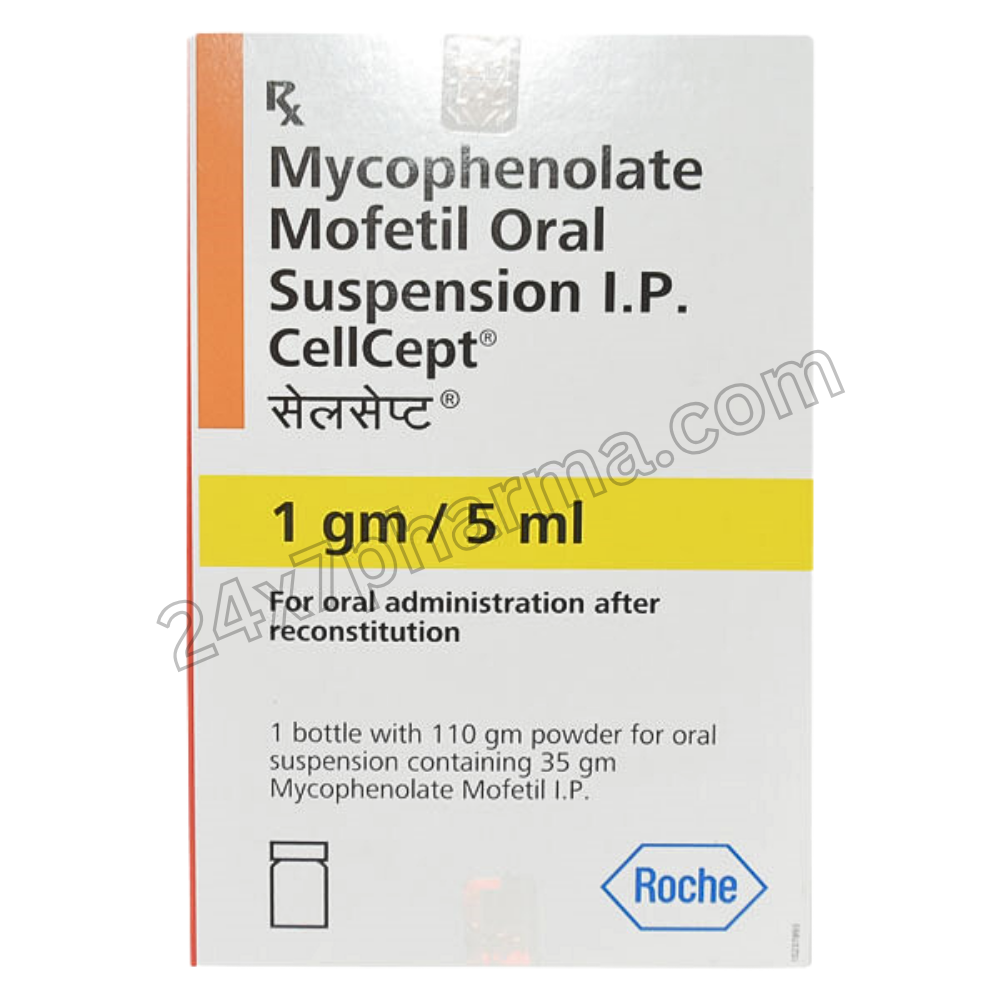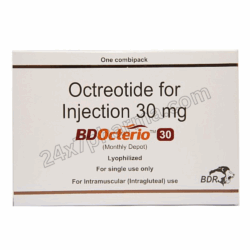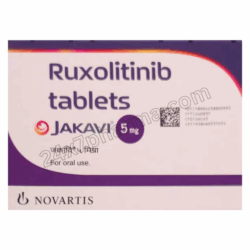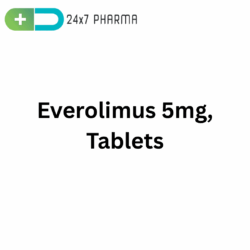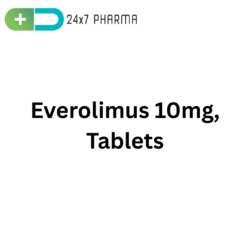About CellCept Oral Suspension
The amount of CellCept Oral Suspension you take and how often you take it depends on the type of transplant you have. Follow your doctor’s instructions on this. Take it on an empty stomach, at least 1 hour before or 2 hours after a meal, unless your doctor suggest otherwise. Swallow it as a whole, do not crush, chew, or break it. Take the medicine regularly to get maximum benefit and keep taking it even when you feel well. The treatment will continue for as long as you need it to prevent rejection.
The most common side effects of this medicine include nausea, vomiting, diarrhea, stomach pain, headache, high blood pressure, and changes in the number of white blood cells. You may catch more infections than usual as medicine suppresses the immune system. There is also an increased risk of developing some cancers for this reason. To reduce your risk of skin cancer, limit your exposure to the sun and use sunscreen. There is a long list of potential side effects of this medicine. You should ask your doctor about them and what signs to look out for because some of them can be serious and need urgent medical attention.
CellCept Oral Suspension can cause birth defects and abortion so do not take it if you are pregnant, planning to become pregnant, or breastfeeding. You should talk to your doctor before taking this medicine if you have any signs of infection or if you have any unexpected bruising or bleeding. You should also let your healthcare team know all other medicines you are taking as they may affect, or be affected by, this medicine. You will have regular tests to check for any changes in the number of your blood cells and the amount of sugar and cholesterol in your blood.
Uses Of CellCept Oral Suspension
- Prevention of organ rejection in transplant patients
Benefits Of CellCept Oral Suspension
In Prevention of organ rejection in transplant patients
Side Effects Of CellCept Oral Suspension
Common side effects of CellCept
- Nausea
- Vomiting
- Diarrhea
- Abdominal pain
- Headache
- High blood pressure
- Decreased white blood cell count (neutrophils)
- Fungal infection
- Low blood platelets
- Anemia (low number of red blood cells)
- Skin cancer
- Bacterial infection
- Hypercholesterolemia (high cholesterol)
- Viral infection
- Electrolyte imbalance
- Gout
- Weight loss
- Tremors
- Convulsion
- Tumor

